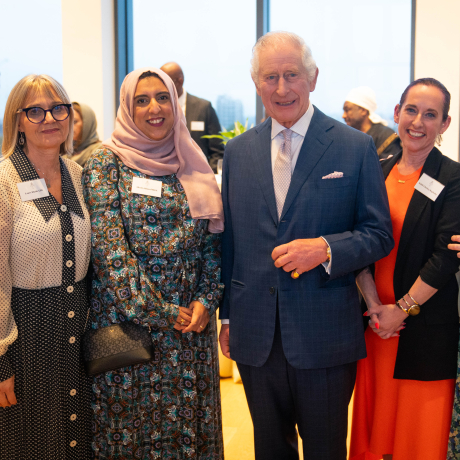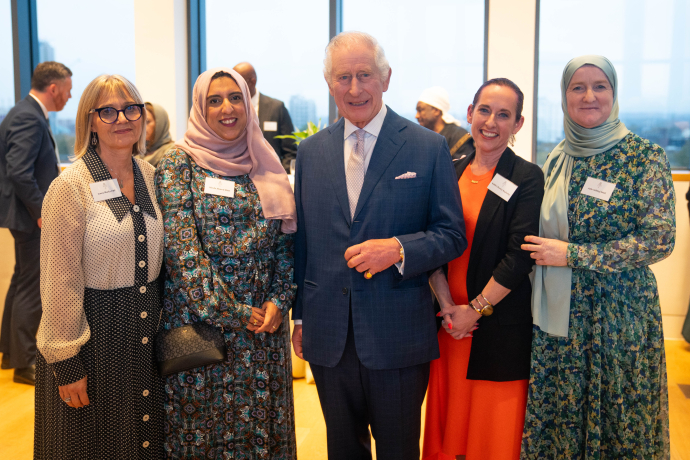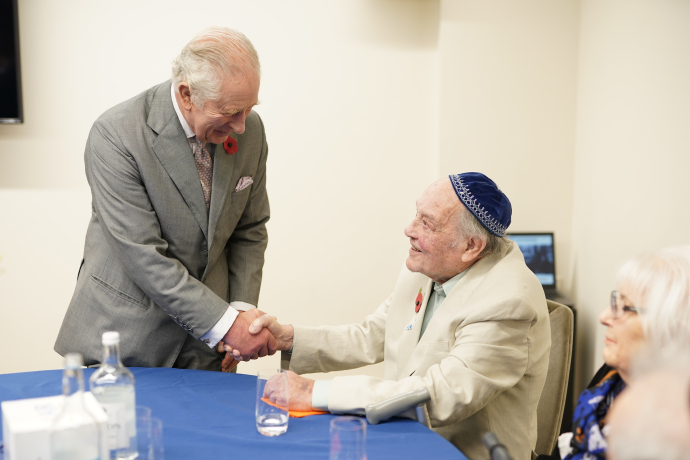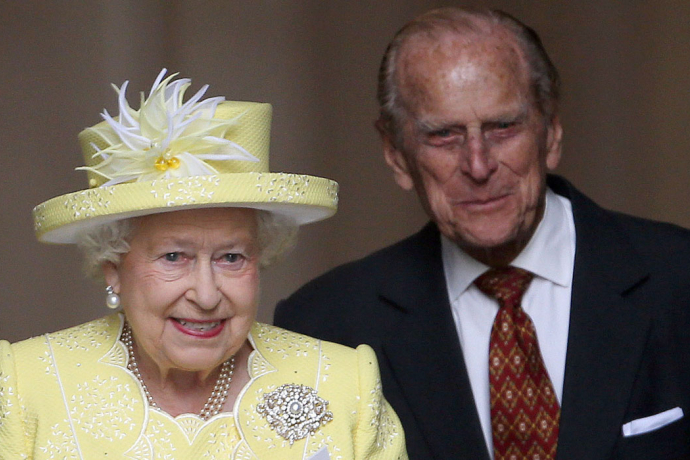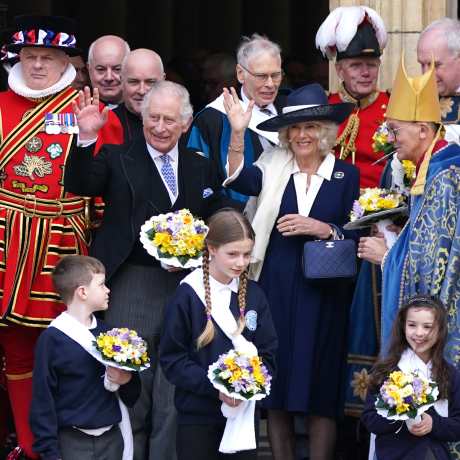The King and the Church of England
The Sovereign holds the title 'Defender of the Faith and Supreme Governor of the Church of England'. These titles date back to the reign of King Henry VIII, who was initially granted the title 'Defender of the Faith' in 1521 by Pope Leo X. When Henry VIII renounced the spiritual authority of the Papacy in 1534 he was proclaimed 'supreme head on earth' of the Church of England. This was repealed by Queen Mary I but reinstated during the reign of Queen Elizabeth I, who was proclaimed 'Supreme Governor' of the Church of England.
The Monarch's relationship with the Church of England is symbolised at the Coronation when the Sovereign is anointed by the Archbishop of Canterbury and takes an oath to "maintain and preserve inviolably the settlement of the Church of England, and the doctrine worship, discipline, and government thereof, as by law established in England"
On the advice of the Prime Minister The King appoints Archbishops, Bishops and Deans of the Church of England, who then swear an oath of allegiance and pay homage to His Majesty. Church of England deacons and parish priests also swear an oath of allegiance to the Sovereign.
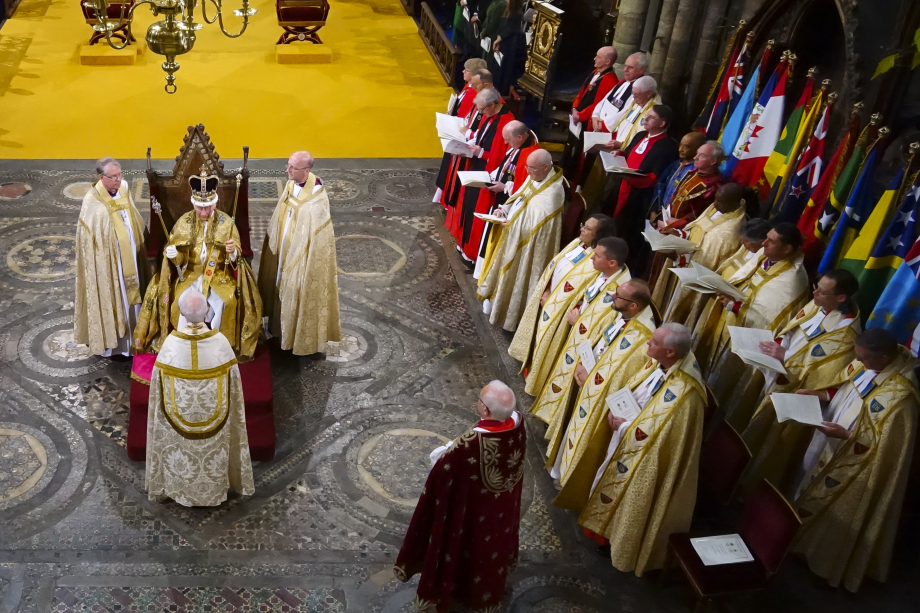
In spiritual and practical matters the Church of England is led by 108 Bishops and managed by a General Synod, which is elected every five years from the laity and clergy of its 41 dioceses. The Synod meets twice annually in London or York to consider legislation for the good of the Church. The legislation is subject to Parliamentary veto and receives Royal Assent as Acts of Parliament. The General Synod also passes ecclesiastical regulations called Canons. These Canons, which bind the clergy and laity of the Church, are submitted to The King for promulgation by Royal Licence on the advice of the Home Secretary.
The Church of Scotland
Monarchs have sworn to maintain the Church of Scotland since the sixteenth century. The duty to "preserve the settlement of the true Protestant religion as established by the laws made in Scotland" was affirmed in the 1707 Act of Union between England and Scotland.
The King made this pledge at the first Privy Council meeting of his reign in September 2022.
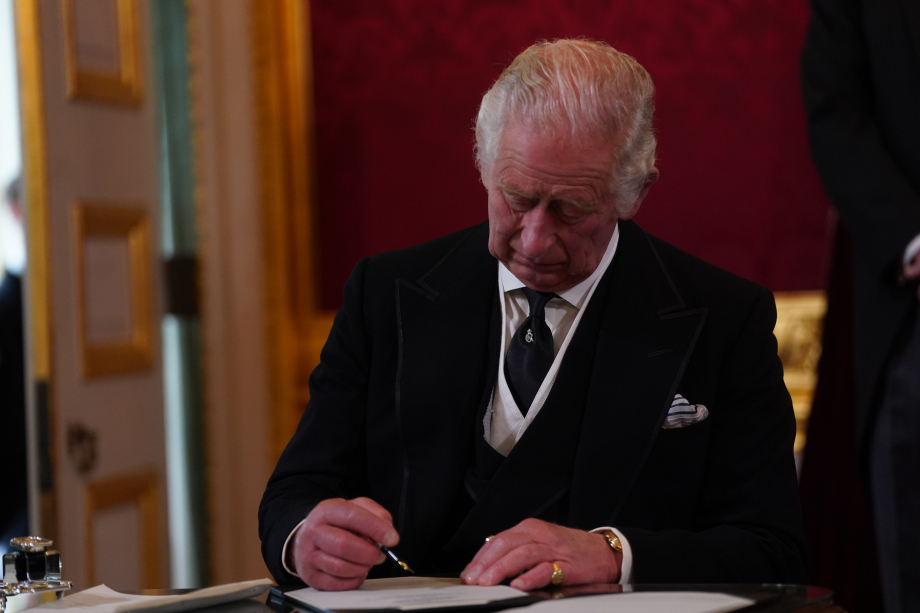
The Church of Scotland is a Presbyterian church and recognises only Jesus Christ as 'King and Head of the Church'. The King therefore does not hold the title 'Supreme Governor' of the Church of Scotland; when attending Church services in Scotland His Majesty does so as an ordinary member.
The Church is entirely self-governing. It is managed on a local level by kirk sessions, at a district level by presbyteries, and at a national level by the General Assembly, which comprises 850 commissioners and meets each May, generally in Edinburgh. Find out more about the government of the Church of Scotland on their website.
The Sovereign is represented at the General Assembly by the Lord High Commissioner, who attends as an observer and is appointed by His Majesty on the advice of the Prime Minister. The Lord High Commissioner makes opening and closing addresses to the General Assembly and reports to His Majesty on its proceedings. Members of the Royal Family have acted as Lord High Commissioners.
The King and other faiths
The King has celebrated religious diversity in the UK and Commonwealth throughout his working life. As Prince of Wales, he met the leaders of all of the main faiths and denominations and visited many sacred sites and places of worship across the world.
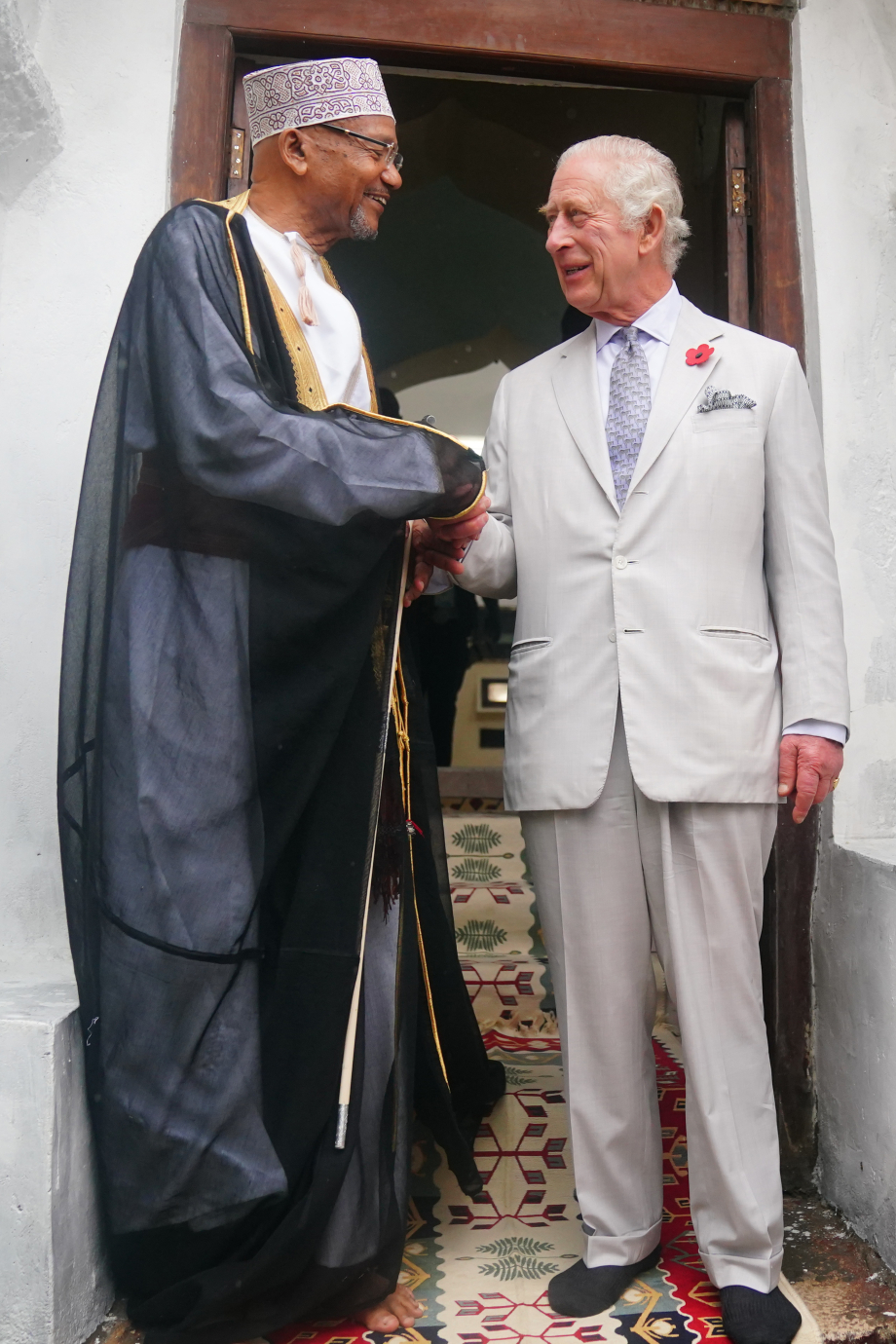
His Majesty has worked for many years on fostering inter-faith dialogue and supporting a greater understanding between religions.
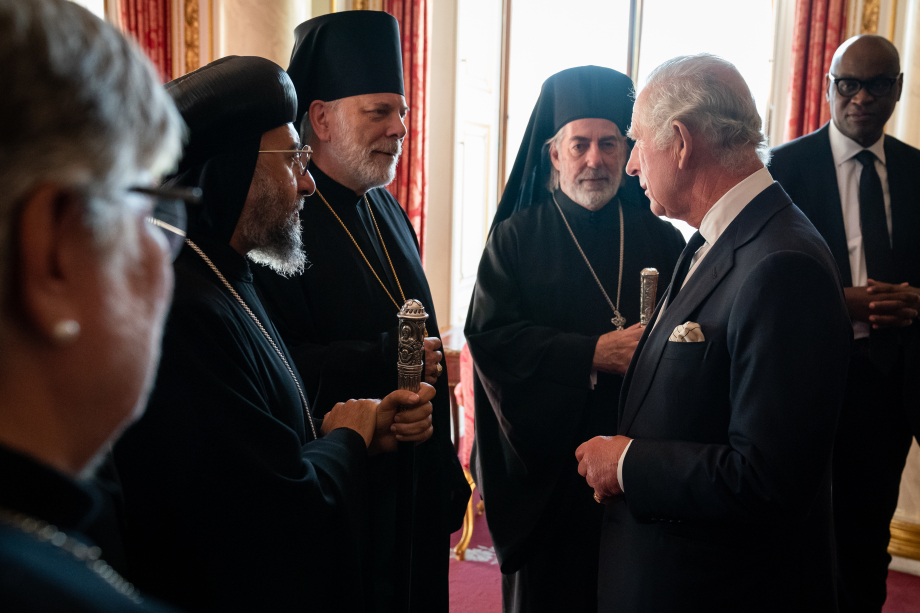
During a reception for faith leaders held at Buckingham Palace shortly after his Accession, His Majesty pledged to uphold all faiths:
I have always thought of Britain as a ‘community of communities.’ That has led me to understand that the Sovereign has an additional duty – less formally recognized but to be no less diligently discharged. It is the duty to protect the diversity of our country, including by protecting the space for Faith itself and its practise through the religions, cultures, traditions and beliefs to which our hearts and minds direct us as individuals.
As Prince of Wales, His Majesty supported faith groups facing persecution by speaking and writing publicly of the prejudices which many face.
In 2005, following the terrorist attacks in London, His Royal Highness wrote an article which was published in the Daily Mirror discouraging the apportioning of blame to the Muslim faith:
Some may think this cause is Islam. It is anything but. It is a perversion of traditional Islam. As I understand it, Islam preaches humanity, tolerance and a sense of community, as do Christianity, Judaism and all the great faiths.
His Royal Highness has also written articles, attended events and sent messages of support regarding the persecution of Christians in the Middle East. In 2018. During a service to celebrate the contribution of Christians in the Middle East, His Majesty spoke of the resilience of persecuted Christians, and his hopes for resolution and forgiveness, saying:
In recent years, I have had the great privilege of meeting so many Christians who, with such inspiring faith and courage, are battling oppression and persecution, or who have fled to escape it. Time and again I have been deeply humbled and profoundly moved by the extraordinary grace and capacity for forgiveness that I have seen in those who have suffered so much.
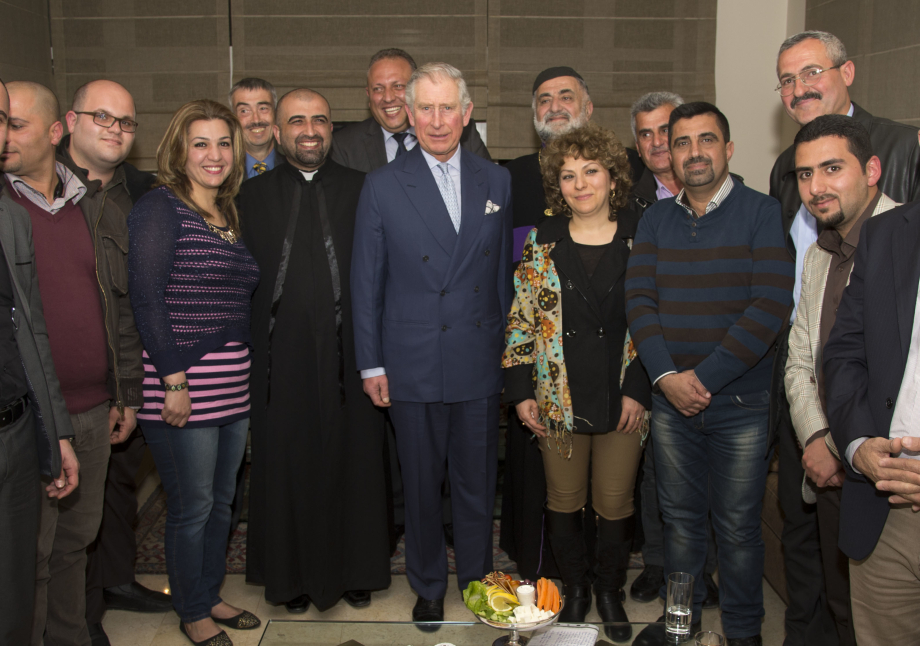
In 2015, The King - then Prince of Wales - met a group of Iraqi Christians who had found refuge in the Jordan during a visit to the country.
In 2021, His Majesty was awarded the Bridge Award from the Council of Christians and Jews for his work. In accepting the award, His Majesty emphasised the importance of his inter-faith work:
Trying to build bridges between faith communities and to deepen mutual understanding, has been a major part of my life’s work. So, I cannot tell you how profoundly grateful I am for such a very special accolade.

